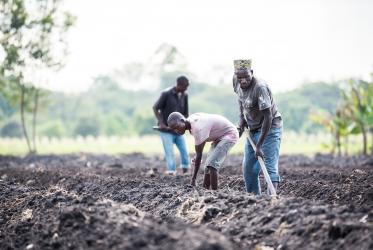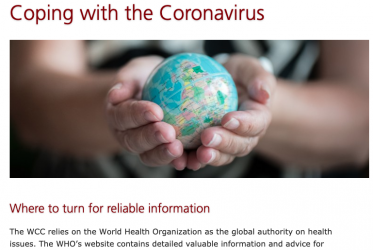Displaying 1 - 20 of 22
WCC condemns massacre of farmers in Philippines
12 April 2019
All pilgrim routes lead to COP24
11 December 2018
#WCC70: A prayer about health and healing
20 July 2018
G7 must address famine
22 May 2017
Consultation considers right to food in context of climate change
15 December 2015
Person with disability shares reflection on AIDS conference
10 December 2015
Land rights focus of panel discussion
17 November 2015
Climate pilgrimage toward COP21 pauses in Geneva
05 November 2015












